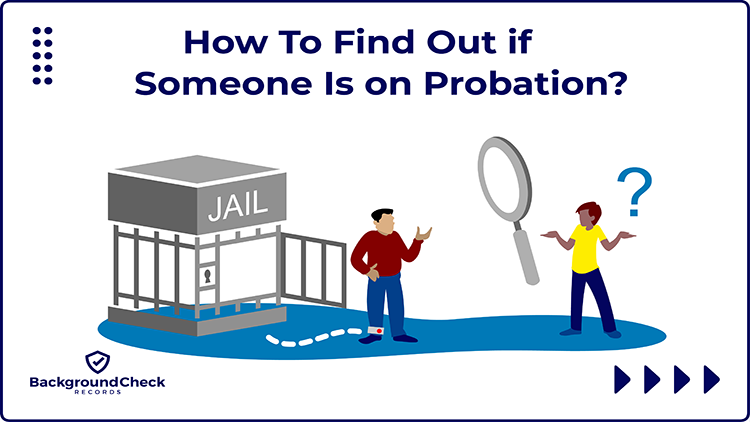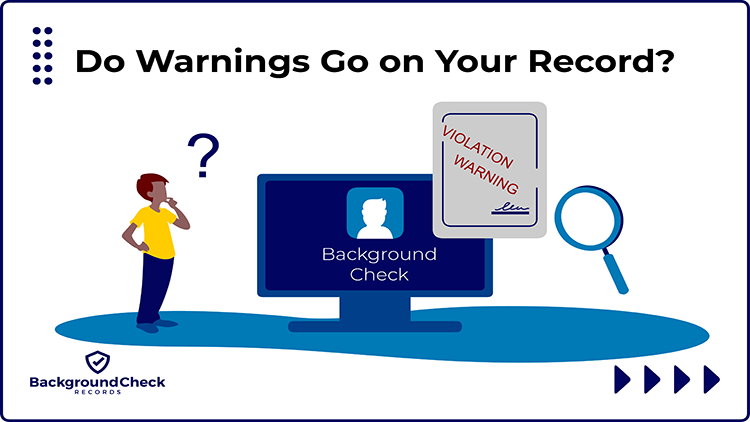Learn How To Find Out if Someone Is on Probation (5 Legit Ways)
With over 3 million people in the United States currently on probation, discovering if someone is on probation can provide insight into their current or past situation.
Whether you’re a curious neighbor, friend, colleague or loved one, the 5 legit ways in this guide will empower you with the know-how and correct agencies to determine if someone is a probationer or not.
Are Probation Records Public?
Probation records are considered public records because probation is ordered by the courts as part of the overall criminal process, whether it is for a diversionary program or deferred prosecution, or when it is used as part of the sentencing phase after a conviction.
Each state has a law or statute that outlines the public’s right to examine certain records that are created by governmental agencies, and these laws are similar to the federal government Freedom of Information Act.
Probation records are considered part of the overall court record, and unless the records have been sealed or expunged by a judge in good standing in the state, they are public and can be viewed upon request unless an exception applies.1
For example, if you were underage when placed on probation then those juvenile records typically can’t be used against you since they’re automatically sealed in the vast majority of cases and cannot be used in employment or housing screenings; however, these records can be used in future criminal cases if a judge deems them necessary for sentencing or treatment decisions.
Adult records, on the other hand, are considered public.
As mentioned earlier, an area that can be tricky when it comes to probation records is when charges are dismissed, they can become criminal records even when probation was used as a diversion program.
In these cases, a person may still have a criminal record and it will show up as a non-conviction. Yet, depending on the state, these non-convictions may be automatically sealed or automatically eligible for expungement upon successful completion of probation.
Probation revocation records will also show up on public record and can be very detrimental to a person’s job prospects since it shows a failure to comply with a court order.
For the most part, probation records are considered public court records with those on supervision monitored by the courts, the state department of corrections, or, in some cases, boards of probation and parole.
It’s also important to note probation and parole can fall under the same state department, and are both forms of community supervision, but there is a huge difference between the two.
Differences Between Probation vs Parole Work & How Each Works
Many people think of probation and parole as the same type of supervision; however, there are five major differences between the two:
- Probation is granted by a judge as part of the sentencing phase of a criminal case or as a diversionary process to give the person a second chance. Parole can only be granted by the parole board in the state which is independent of the state’s court system.
- Probation is part of the sentence and is used in place of prison. Parole is granted after a person has served a significant part of an active prison sentence.
- A person is typically granted probation because they are determined to be a limited risk to the public at large and can be monitored in the community for the entirety of the sentence. Parole is granted to someone who is considered a low to moderate risk to reoffend or present a danger to the community due to their rehabilitation while in prison.
- Probationers get to go home the day the court enters the sentence because they are not being ordered to serve an active sentence. Parolees are released early from prison to either go home or go into a transitional housing program where they can work and continue treatment.
- Probation can be either supervised (meaning the person has to check in with a probation officer on a set schedule) or unsupervised (meaning the person must pay fines and court costs and remain out of legal trouble for a set amount of time). Parole is always supervised since the person is being given a chance to serve the remainder of an active sentence in the community.2
Probation works by allowing a person to pay court costs, fines, and other fees, complete community service, and get appropriate treatment (such as drug and alcohol treatment in DUI cases or abuser treatment in domestic violence cases) while continuing to live at home and maintain employment.
With unsupervised probation, the person will have to provide proof of satisfying the sentencing requirements.
Court costs and fees are tracked by the clerk of court’s office. Community service hours are monitored by a state approved community service program which submits documentation to the courts.
The person may also be required to submit to drug or alcohol screenings at a state approved site which submits a report to the courts. Basically, if there are any conditions the person is under, they must make sure the court, through the clerk’s office, has a record of their payments and treatment progress.3
Supervised probation is more restrictive; however, the person is still allowed to live at home and work, with gainful employment a typical requirement of supervised probation.
Under supervised probation, the offender is also required to check in with their probation officer (who is considered an officer of the state) to discuss their progress, any issues that may arise (such as being terminated from work), and for drug and alcohol screenings. Individuals on supervised probation may also be required to pay a probation-supervision fee as part of the overall court costs.4
Depending on the person’s progress on probation, a judge may order someone on unsupervised probation to be placed on supervised probation or vice versa.
In other words, if someone doesn’t pay fines and court costs on unsupervised probation, a warrant can be issued for the person to appear back before the judge who then changes the sentence to supervised probation or an active period of incarceration.
In the reverse, a judge can order supervised probation be automatically switched to unsupervised if the person satisfies all monetary obligations of the sentence such as restitution, fines and court costs without having to revisit the case in court.5
How To Determine If Someone Is On Probation & Check Their Probation Status
There are several reasons a person may want to do a probation status check of another, including employment screenings, housing applications, curiosity, or making sure offenders are still being supervised.
Regardless of the reasons, knowing how and where to find these records is a necessity.
Below is information on how to locate probation records using various means in each state and on the federal level.
1. Search Local Courts For Probation Records
One of the best ways to find out if someone is on probation is through the state court system because the courts are responsible for the creation and maintenance of criminal case files.
This type search can be particularly helpful as well since courts are often a source for free criminal background checks — especially if the state has a unified court system.
To search court records, do the following:
- Google “[state name] court record search.” For example, Google “California court record search.”
- Review the top search results and click the link for the official state judiciary page. In the example above it would be the link for Access to Electronic Records through the California Courts website.
- If the link doesn’t take you directly to the search portal, look for a link that is labeled court records or public records to see if there is an online portal for that state. In the example provided here, select the link to View All Courts on the right-hand side of the page.6
- Do a name-based search either online to find the case data. If the person was placed on probation, it will be listed under a section entitled sentencing or disposition.
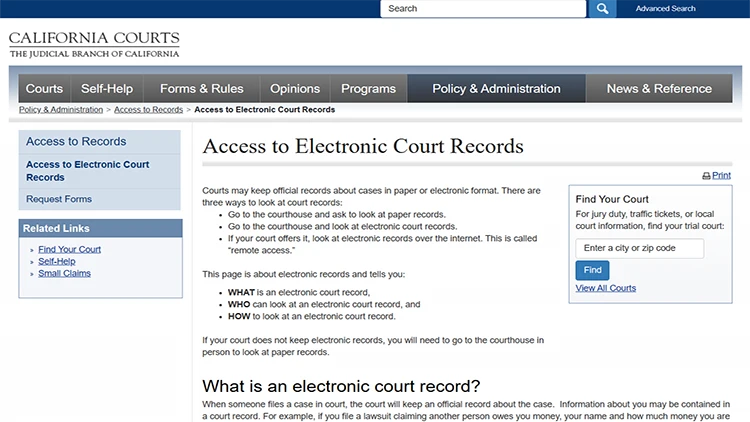
Source: The California Courts7
Another option, if an online portal isn’t available, is to go to the clerk of court’s office where the person resides or where the trial was held and do a search using the public terminals provided by the clerk’s office. This will reveal local case information which may be sufficient for level 1 background checks that may not require statewide or national criminal history records.
Using the steps above, a person can click on the court directory on the state’s court page to look for the address and phone number of the clerk of court’s office for a county records search.
Not every state allows online searches, and the information may vary from state to state based on state laws, policies and procedures, and guidelines established by the courts or clerk’s offices.
Searching court records can reveal if a person is on probation, but that is not the only state agency that provides this data.
2. Find Probationers Through State Agencies
Other than the courts, there are other state agencies that allow you to figure out if someone is on probation. This includes the official state background check agency (typically the state police or state department of public safety) and the state correctional department.
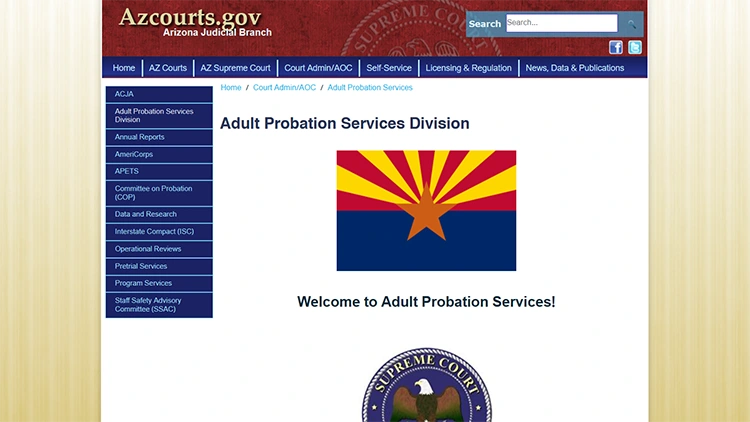
Source: The Arizona Judicial Branch8
While many people associate the state’s department of corrections for prison inmates only, many states place probation services under the corrections department as well. The DOC is separated between secure facilities (prison) and community corrections (probation).
Parole also sometimes falls under DOC guidance, but this is not always the case. For convenience, the table below lists all the state community corrections agencies (some of which are the state courts) and the state background check agencies with a link to each:
*Agency utilizes VINELink for probation search portal
Searchers should also be aware that the official background check agencies listed can show if a person is on probation; however, that is not the only information that is provided in the report.
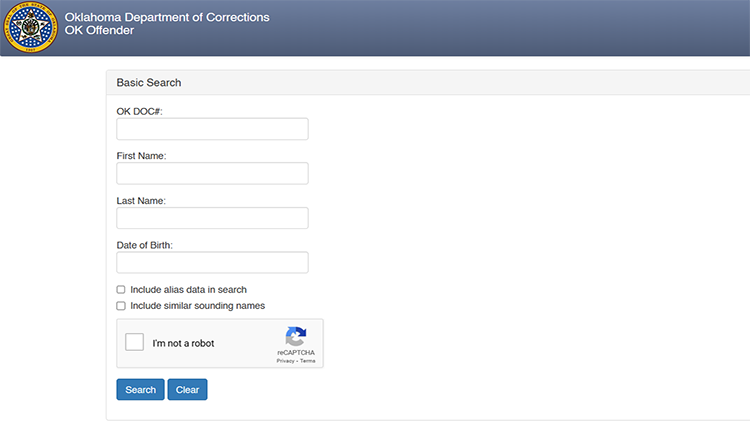
Source: The DOC Offender Lookup9
In order to search for someone’s probation status in a state, do the following steps:
- Google “[state name] probation search.” For example, to find out if someone is on probation in California, Google “California probation search.”
- Review the top results for the official state agency page. In the example above, searchers will learn that California probation supervision falls under the county governments. Review the list to find the county where the supervision occurs and click that link. For example, in LA, searchers would visit the website for the Los Angeles County Probation office.
- On the website, look for a link that is labeled offender locator or offender search. Read the disclaimer to see if this only provides data on incarcerated individuals or those on community supervision as well.
- If the site does not show probation status, use the table above to request a statewide background check which will include probation information or conduct a search of court records to find probation status.
For professional reasons, these state agencies can be used to conduct a criminal background check on someone without their permission but it’s important to review the disclaimers carefully.
For example, department of corrections records typically do not require consent of the subject to use the online portal, but a statewide criminal background check may require written permission from the subject before the record can be released. Furthermore, background checks for housing, insurance, employment, licensing and more must have the subject’s consent.
Another option is through third-party personal background check agencies which do not require the subject’s consent, but do caution the searcher that results should not be used to harass or intimate the person in the report.
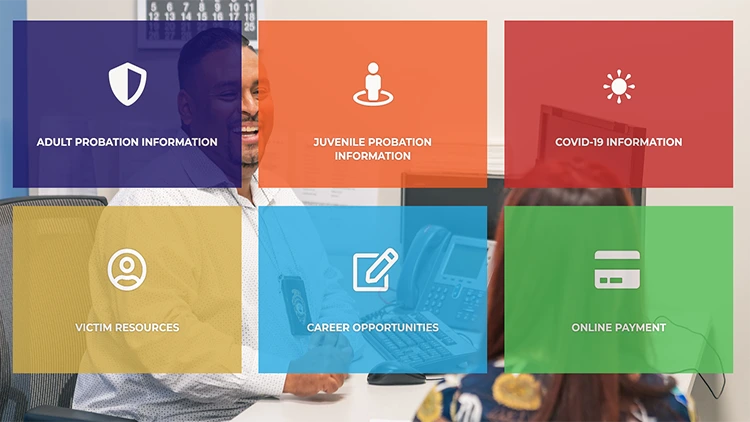
Source: The Probation – Los Angeles County10
As mentioned before, probation is not to be confused with parole, but it is important to also know how to check parole status of an individual.
3. Check Your State’s Board of Paroles To See if Someone Was Granted Early Release
Each state has a parole board that reviews prison parole applications or petitions and decides if the person can be released early from prison or needs to serve more time, or completely serve their active sentence.
Supervision of parolees often falls under the state department of corrections or state parole board, and to search for parole status do the following:
- Google “[state name] parole search.” For example, to find a parolee in New York, Google “New York parole search.”
- Review the top search results for the official state agency that handles parole. In the example here, it is the New York Department of Corrections and Community Supervision Parolee Lookup page.
- Enter the subject’s first and last name and hit the search button to see if the individual is on parole in that state.
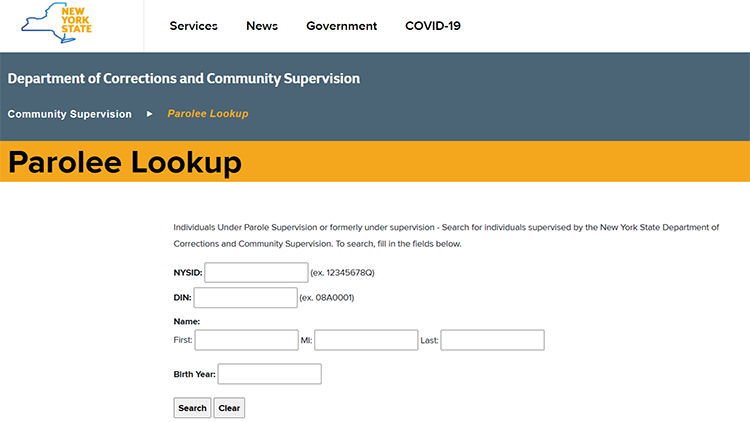
Source: NY.gov11
Federal courts also have the option to sentence an individual to probation in place of active incarceration for certain offenses, and searches should know how to search federal probation status as well. It is important to note that not every state board of parole will have an online look-up portal.
Using the steps above to find the parole board, searchers can check the official website for a phone number for the parole board to make a telephone inquiry.
4. Search Federal Records for Federal Probationers (Also Known As Parolees)
Locating someone’s federal probation status can be completed in a couple of ways but it’s important to note that the public usually refers to federal probation as parole.
Federal probation works much like state-level; however, the individuals placed on federal community supervision have been charged with federal offenses, not state criminal acts.
For example, a person charged with piracy may be placed on federal probation. The first way to search for these records is to do the following:
- Open the US Courts PACER website.
- Log into your PACER account.
- Select the party search link, then choose defendant and criminal court from the drop-down menus in the form that opens.
- Enter the person’s first and last name and hit the search button to view the record.
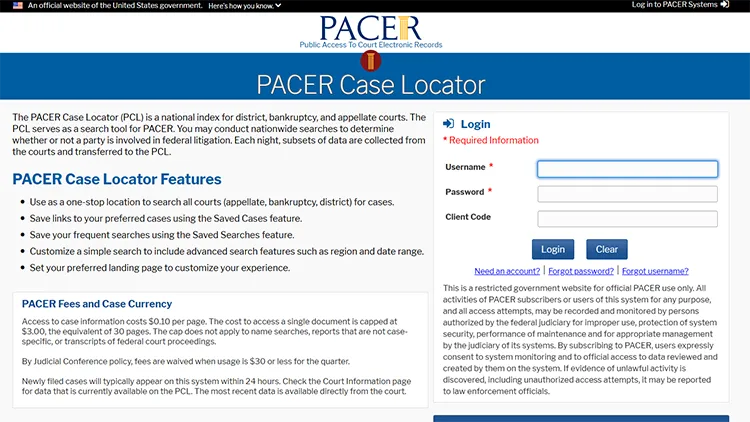
Source: The PACER Case Locator: PACER12
Another way to locate a person’s federal probation status is to call the federal probation office in the area where the person lives. To find the local federal probation office, follow these steps:
- Open the US Courts website.
- Click the federal court finder tab at the top of the page and enter the zip code where the subject lives. For example, if the subject lives in Charleston, South Carolina, a person might type the 29401 zip code in the box that appears.
- A list of federal court offices will populate on the screen. Scroll to the listing for the federal probation office in that area to get the contact number. For this particular example, the office would be through the United States Probation and Pretrial Services District of South Carolina location.
- Call the federal probation office and ask the officer of the day for the subject’s federal probation status.
PACER and the US Courts probation offices provides insight as to if someone is on probation on the federal level. Yet, there are also ways to find someone’s probationer officer if you need to report something or have a concern for someone’s safety or well-being.
State and federal agencies are the official government resources for learning a person’s probation status, but they are not the only options available. A person can also hire a commercial background check provider to get the information as well.
5. Run a Background Check To Find Out If Someone Is On Probation (Running a Probation Search)
One way a person can satisfy their curiosity about whether someone they know is or has been on probation is to run a personal background check.
Using local, state or federal sources, or going through a third-party, people-finder type site can reveal someone’s probation status, sometimes within minutes.
Commercial background check agencies that provide probation information for professional uses must adhere to Fair Credit Reporting Act (FCRA) guidelines regarding criminal records. This means probation used as a diversionary program which later resulted in dismissed or dropped charges older than seven years cannot be part of a professional commercial background check since the matter is now a non-conviction.
Personal screenings for those wishing to learn someone’s probation status for personal reasons, such as on a love interest or just out of curiosity about an acquaintance or family member, are not bound by the same FCRA rules as professional screenings regarding lookback period.
To find out if someone is on probation, you need to know which local, state, and federal agencies host and distribute this information. If this fails, third-party background checks can also provide insight.
Frequently Asked Questions
How To Determine if Someone Is on Parole?
Most parole searches can be conducted using the subject’s first and last name through the state’s parole board online search portal or through the state department of corrections. Parole status may also appear on commercial background checks.
Victims are notified of an inmate’s parole status when the case is reviewed by the parole board as well.
Will Probation Show Up on a Background Check?
Probation can and does appear on background checks; however, when used as a pretrial diversion that results in dismissal of the charges at the successful completion of probation, the record may automatically be sealed or expunged based on state law. Probation as part of post-trial sentencing will also appear on records unless they are sealed or expunged per state statutes.
1 Love, M. (2017, March 9). Restrictions on access to criminal records: A national survey. Collateral Consequences Resource Center. Retrieved April 2, 2023, from <https://ccresourcecenter.org/2017/03/09/restrictions-on-access-to-criminal-records-a-national-survey/>
2 Probation and Parole in North Carolina: What’s the Difference? (n.d.). Law Firm of Schlosser & Pritchett. Retrieved April 2, 2023, from <https://www.schlosserandpritchettlaw.com/probation-and-parole-in-north-carolina-whats-the-difference/>
3 Unsupervised Probation – What is it and how does it work? (2022, August 16). Shouse Law Group. Retrieved April 2, 2023, from <https://www.shouselaw.com/ca/blog/unsupervised-probation/>
4 Peeler, T. (2023, January 13). Difference between Supervised and Unsupervised Probation. LegalMatch. Retrieved April 2, 2023, from <https://www.legalmatch.com/law-library/article/what-is-supervised-probation.html>
5 Supervised probation to unsupervised? – Legal Answers. (n.d.). Avvo. Retrieved April 2, 2023, from <https://www.avvo.com/legal-answers/supervised-probation-to-unsupervised--1868402.html>
6 Find Your Court – superior_courts. (n.d.). California Courts. Retrieved April 2, 2023, from <https://www.courts.ca.gov/find-my-court.htm?query=browse_courts>
7 Access to Electronic Court Records.” California Courts. Accessed 2 May 2023. <https://www.courts.ca.gov/42512.htm>
8 Home.” Arizona Judicial Branch. Accessed 2 May 2023. <https://www.azcourts.gov/apsd/>
9 DOC Offender Lookup. Accessed 2 May 2023. <https://okoffender.doc.ok.gov/>
10 Probation – Los Angeles County. Accessed 2 May 2023. <https://probation.lacounty.gov/>
11 Parolee Lookup.” NY.gov. Accessed 2 May 2023. <https://publicapps.doccs.ny.gov/ParoleeLookup/default>
12 PACER Case Locator: PACER. Accessed 2 May 2023. <https://pcl.uscourts.gov/pcl/index.jsf>

